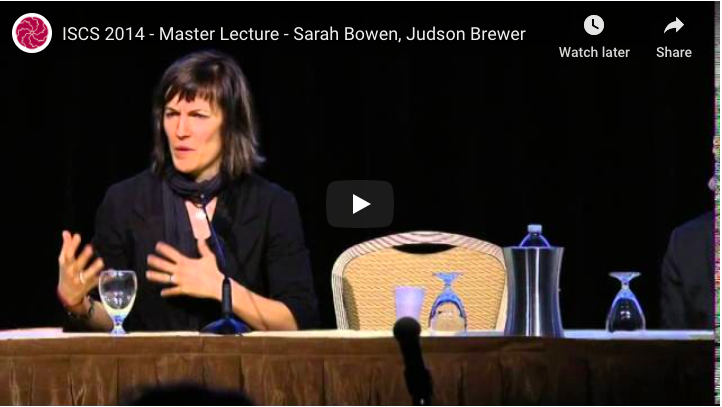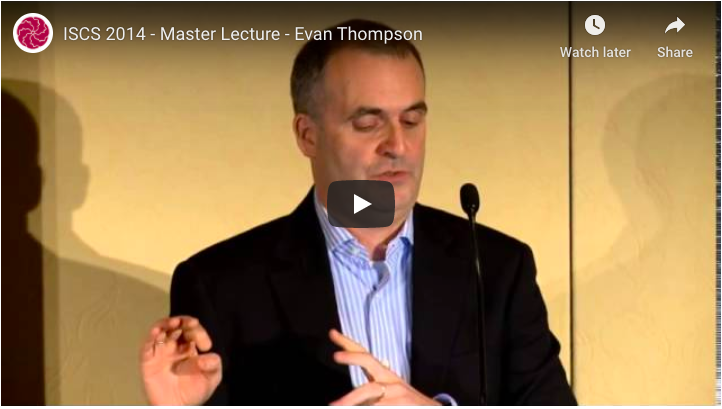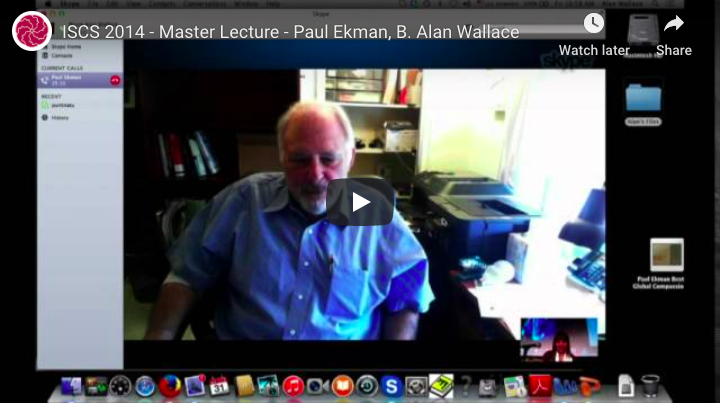Research suggesting beneficial effects of yoga on myriad aspects of psychological health has proliferated in recent years, yet there is currently no overarching framework by which to understand yoga’s beneficial effects. In this session, we provide a theoretical framework and systems-based conceptual model of yoga that focuses on self-regulation. We begin by contextualizing yoga in …
Topic Archives:
Concurrent Session 1 -Neurocognitive Processes of Addiction: A Therapeutic Role for Mindfulness?
Several neurocognitive processes have been implicated in addiction, including motivated attention, reward processing, emotion regulation, stress reactivity, delay discounting, and inhibitory control. These processes appear to depend on functionally integrated cortico-limbic-striatal circuits whose dysfunction supports the acquisition, maintenance, and reinstatement of addictive behaviors. Novel interventions that target the neurocognitive processes underlying addictive behavior may hold …
Concurrent Session 1 – Remote Emotional Memory for Depictions of Human Suffering Following an Intensive Meditation Intervention
Meditation training is presumed to influence individuals’ emotional engagement with others’ suffering. Although evidence is accumulating for the prosocial effects of intensive practice in meditation, little is known about how training may alter primary cognitive representations of compassion-eliciting stimuli. We assessed individuals’ remote (six-year) incidental memory for emotional images viewed both before and after a …
Concurrent Session 1 – Validation of the Perceived Compassion Scale
A self-report scale measuring perceived compassion, in its embodied and functional aspects, will be presented, including preliminary psychometric validation results. There has been some debate as to whether compassion can be measured through self-report. Neff’s Self-Compassion Scale, possibly the most widely used instrument, operationalizes compassion in terms of mindfulness, common humanity, and self-kindness. Others (e.g., …
Continue reading “Concurrent Session 1 – Validation of the Perceived Compassion Scale”
Concurrent Session 1 – Deep Reading as Contemplative Practice
Deep reading as contemplative practice has implications for a free and democratic society. Sven Birkerts gets the credit for coining the term “deep reading.” Deep reading is about slowing down and activating the power of narrative. Through the activation of mirror neurons, readers are transported to new situations. Mary Helen Immordino-Yang and others add to …
Continue reading “Concurrent Session 1 – Deep Reading as Contemplative Practice”
Master Lecture – Buddhism, Behaviorism, and the Brain
Buddhism, Behaviorism, and the Brain: Towards a Better Understanding of the Mechanisms and Mitigation of Craving, Grasping, and Addiction The seemingly intractable behavioral cycles and suffering of addiction offer a vivid and painful illustration of the necessity and challenge of behavior change. Decades of tireless research on the nature of, and mechanisms underlying, addiction have …
Continue reading “Master Lecture – Buddhism, Behaviorism, and the Brain”
ISCS 2014 – Master Lecture – Sarah Bowen, Judson Brewer
Buddhism, Behaviorism, and the Brain: Towards a Better Understanding of the Mechanisms and Mitigation of Craving, Grasping, and Addiction
Master Lecture – Dreamless Sleep and Consciousness
One of the major debates in classical Indian philosophy concerned whether consciousness is present in dreamless sleep. Advaita Vedanta, Buddhism, and Sankhya-Yoga argued that consciousness is present in dreamless sleep, whereas Nyaya denies this. Consideration of this debate, especially the reasoning Advaita Vedanta used to rebut the Nyaya view, calls into question the standard neuroscience …
Continue reading “Master Lecture – Dreamless Sleep and Consciousness”
ISCS 2014 – Master Lecture – Evan Thompson
Dreamless Sleep and Consciousness
ISCS 2014 – Master Lecture – Paul Ekman, B. Alan Wallace
What Constitutes Compelling Evidence, And For Whom? (B. Alan Wallace) Why Don’t We All Have Global Compassion? (Paul Ekman)




